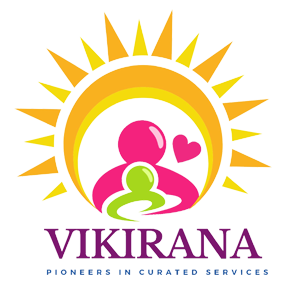
Early Intervention Programs
Early Intervention Services, All children develop and grow at their own pace, accomplishing certain tasks like beginning to talk or walk. There are certain concerns at specific ages regarding a young child’s development, often called red flags, that are cause for immediate referral through Help Me Grow. You should also talk with your child’s healthcare provider about your concerns. Here is one family’s story about their experience with early intervention: “It's obvious that I have found a group of professionals that are dedicated, knowledgeable and incredibly caring. We couldn't be in better hands. For the first time I feel like we have a real advocate in the classroom. It helps me breathe a sigh of relief that someone is there helping him and advocating for him.” - Metro Parent
Infant and Toddler Intervention (ages birth through two years)
Minnesota´s Infant and Toddler Intervention program provides services for children birth through two years of age. These services are for children who may be experiencing delays in their development for several reasons, or may have a diagnosed condition, such as loss of hearing or Down syndrome, that is likely to result in a developmental delay. A premature baby born weighing less than three pounds, five ounces, is automatically eligible, however, a referral is still required.
Talk with your child’s healthcare provider and make a referral through Help Me Grow if you have concerns about a diagnosed condition and its potential impact on development and learning.
Looking for age-appropriate red flags can guide you in taking the next step. Select the age of the child below and see reasons to refer a child. Many of these are adapted from the Centers for Disease Control and Prevention’s “Learn the Signs. Act Early.” initiative.
Early Intervention Screening
- Doesn’t startle at loud noises.
- Doesn’t briefly follow moving object with eyes.
Early Intervention Screening
- Doesn’t respond to loud noises.
- Doesn’t watch things as they move.
- Doesn’t bring hands to mouth.
- Can’t hold head up when pushing up when on tummy.
Early Intervention Screening
- Doesn’t smile at people.
- Can’t hold head up and push chest up when on tummy.
- Doesn’t follow movement by turning head.
- Doesn’t bring hands to mouth.
- Doesn’t chuckle in response to you.
Early Intervention Screening
- Doesn’t watch things as they move.
- Doesn’t smile at people.
- Can’t hold head steady.
- Doesn’t coo or make sounds.
- Doesn’t bring things to mouth.
- Doesn’t push down with legs when feet are placed on a hard surface.
- Has trouble moving one or both eyes in all directions.
Early Intervention Screening
- Doesn’t try to get things that are in reach.
- Shows no affection for caregivers.
- Doesn’t respond to nearby sounds.
- Has difficulty getting things to mouth.
- Seems very floppy, like a rag doll.
- Doesn’t make vowel sounds such as “ah,” “eh,” “oh.”
- Doesn’t roll over in either direction.
- Doesn’t laugh or make squealing sounds.
- Seems very stiff, with tight muscles.
Early Intervention Screening
- Doesn’t bear weight on legs with support.
- Doesn’t sit with help.
- Doesn’t babble such as “mama,” “baba,” “dada.”
- Doesn’t play any games involving back-and-forth play.
- Doesn’t respond to own name.
- Doesn’t seem to recognize familiar people.
- Doesn’t look where you point.
- Doesn’t transfer toys from one hand to another.
Early Intervention Screening
- Doesn’t crawl.
- Can’t stand when supported.
- Doesn’t search for things that are hidden from sight while your baby watches.
- Doesn’t point to things.
- Doesn’t learn gestures like waving bye-bye or shaking head “no.”
- Doesn’t say single words like “mama” or “dada.”
- Loses skills once had.
Early Intervention Screening
- Doesn’t point to show things to others.
- Can’t walk.
- Doesn’t know what familiar things are for such as a comb, spoon or cup.
- Doesn’t copy others.
- Doesn’t gain new words.
- Doesn’t say at least six words.
- Doesn’t notice or mind when a caregiver leaves or returns.
- Loses skills once had.
Early Intervention Screening
- Doesn’t know what to do with common things, such as a brush, phone, fork or spoon.
- Doesn’t copy actions and words.
- Doesn’t follow simple instructions.
- Doesn’t use two-word phrases such as “drink water.”
- Doesn’t walk steadily.
- Loses skills once had.
Early Childhood Intervention (ECI) center
- You can be referred by a parent into a local area coordinator.
- Does not need a formal diagnosis to be eligible for intervention.
- Can receive early intervention supports across domains such as Occupational Therapy, Speech Therapy, Physiotherapy and Psychology.
- Private referral
- Use of Medicare or private health insurance or NGOs.
Vikirana offers early intervention (children up to 7 years) and services for older children (7 + years) and teenagers (12 – 18 years). You may be looking for assistance from one service such as occupational therapy, or we can support you with a multidisciplinary approach where you may receive a combination of therapies such as occupational therapy, physiotherapy, speech pathology and behaviour support. If you feel your child may benefit from the help of our network of skilled and supportive service providers, please get in touch with our friendly team to discuss your child today! Find out more about our intervention services, or if you are ready to make a referral fill out our contact


